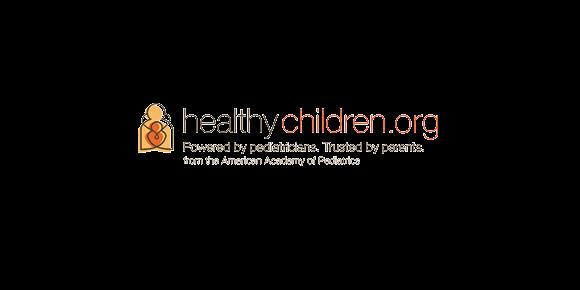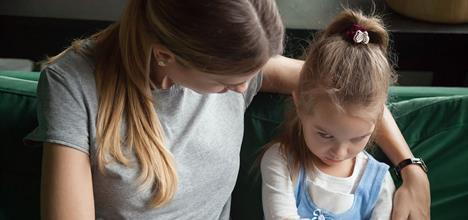
Positive Parenting & COVID-19: 10 Tips to Help Keep the Calm at Home

Calmly teaching your child good behavior can become more difficult, though no less important, during stressful times. The American Academy of Pediatrics (AAP) offers these tips for families facing long periods of time isolated at home during the COVID-19 outbreak.
With schools closing and many parents working at home or facing job uncertainty, it's more important than ever to use positive parenting and healthy approaches to discipline. Some examples:
1. Prevent boredom. Bored or frustrated children are more likely to act out. Many U.S. children have had their lives disrupted--they are out of school, and they can't play with their friends. Try to keep kids busy with a healthy and productive schedule at home.
2. Address fears. Children who are old enough to follow the news may be afraid, for example, that they or their parents are going to die. The medical research about COVID-19 shows that healthy people under 60 are unlikely to get very sick or die. Talk with children about any frightening news they hear.
3. Use time-outs. This discipline tool works best by warning children they will get a time-out if they don't stop. Remind them what they did wrong in as few words―and with as little emotion―as possible. Then, remove them from the situation for a pre-set length of time (1 minute per year of age is a good guide).
4. Redirect bad behavior. Sometimes children misbehave because they don't know any better and need some guidance. Find something else for your child to do.
5. Know when not to respond. As long as your child isn't doing something dangerous and gets plenty of attention for good behavior, ignoring bad behavior can be an effective way of stopping it. Ignoring bad behavior also can teach children natural consequences of their actions. For example, if your child keeps dropping food on purpose, there will be nothing left to eat.
6. Praise success. Children need to know when they do something bad—and when they do something good. Notice good behavior and point it out, praising success and good tries. This is particularly important in these difficult times, when children are separated from their friends and usual routines.
7. Allow time for attention. The most powerful tool for effective discipline is attention—to reinforce good behaviors and discourage others. When parents are trying to work at home whether children or out of school or childcare, this can be tough. Clear communication and setting up expectations, particularly with older children, can help with this.
8. Avoid physical punishment. The Academy reminds parents that spanking, hitting, and other forms of physical or “corporal" punishment risks injury and isn't effective. Physical punishment can increase aggression in children long-term, and fails to teach children to behave or practice self-control. In fact, research shows it may harm the child and inhibit normal brain development. Corporal punishment may take away a child's sense of of safety and security at home, which are especially needed now.
9. Take care of yourself. Caregivers also should be sure to take care of themselves physically: eat healthy, exercise and get enough sleep. Find ways to decompress and take breaks. If more than one parent is home, take turns watching the children if possible.
10. Remember to take a breath. In addition to reaching out to others for help, the AAP recommends parents feeling overwhelmed or especially stressed try to take just a few seconds to ask themselves:
Does the problem represent an immediate danger?
How will I feel about this problem tomorrow?
Is this situation permanent?
In many cases, the answers will deflate the panic and the impulse to lash out physically or verbally at children.
More Information:
- What's the Best Way to Discipline My Child?
- How to Shape and Manage Your Young Child's Behavior
- Feeling Overwhelmed with Parenting Demands?
- Tips for Coping with a New Baby During COVID-19
- Last Updated
- 3/23/2020
- Source
- American Academy of Pediatrics
